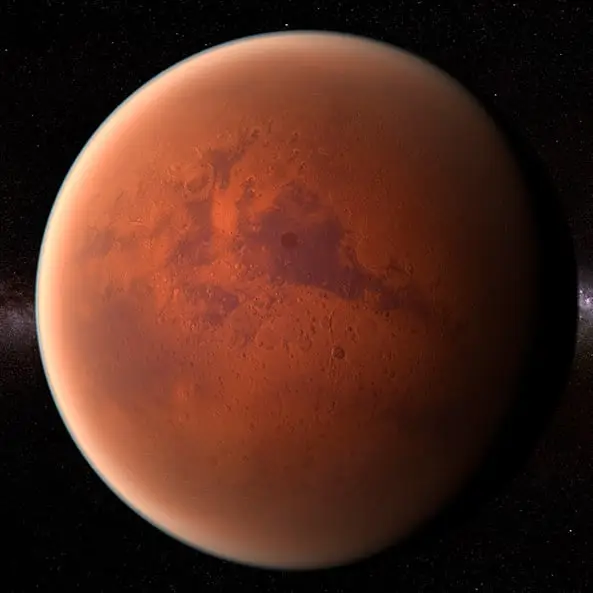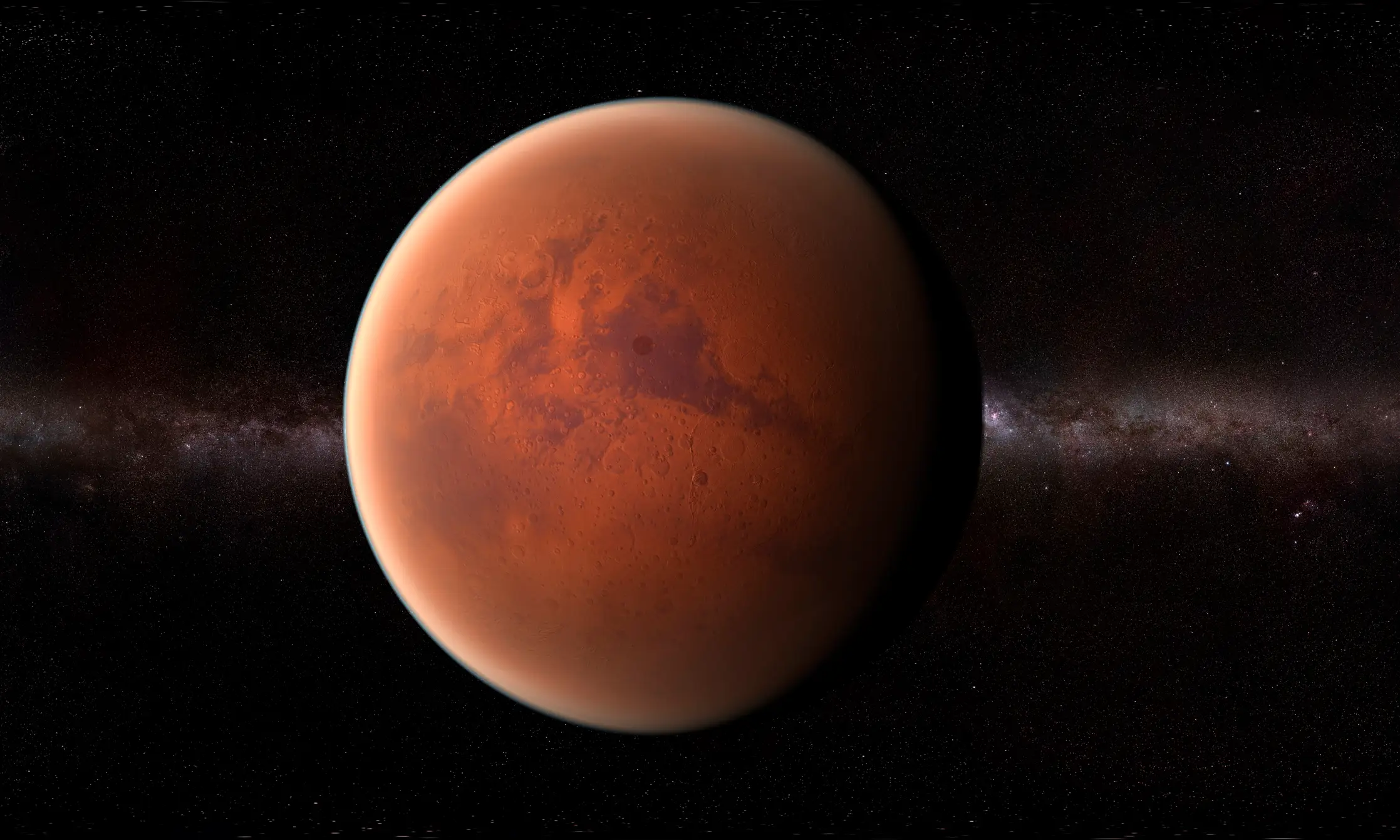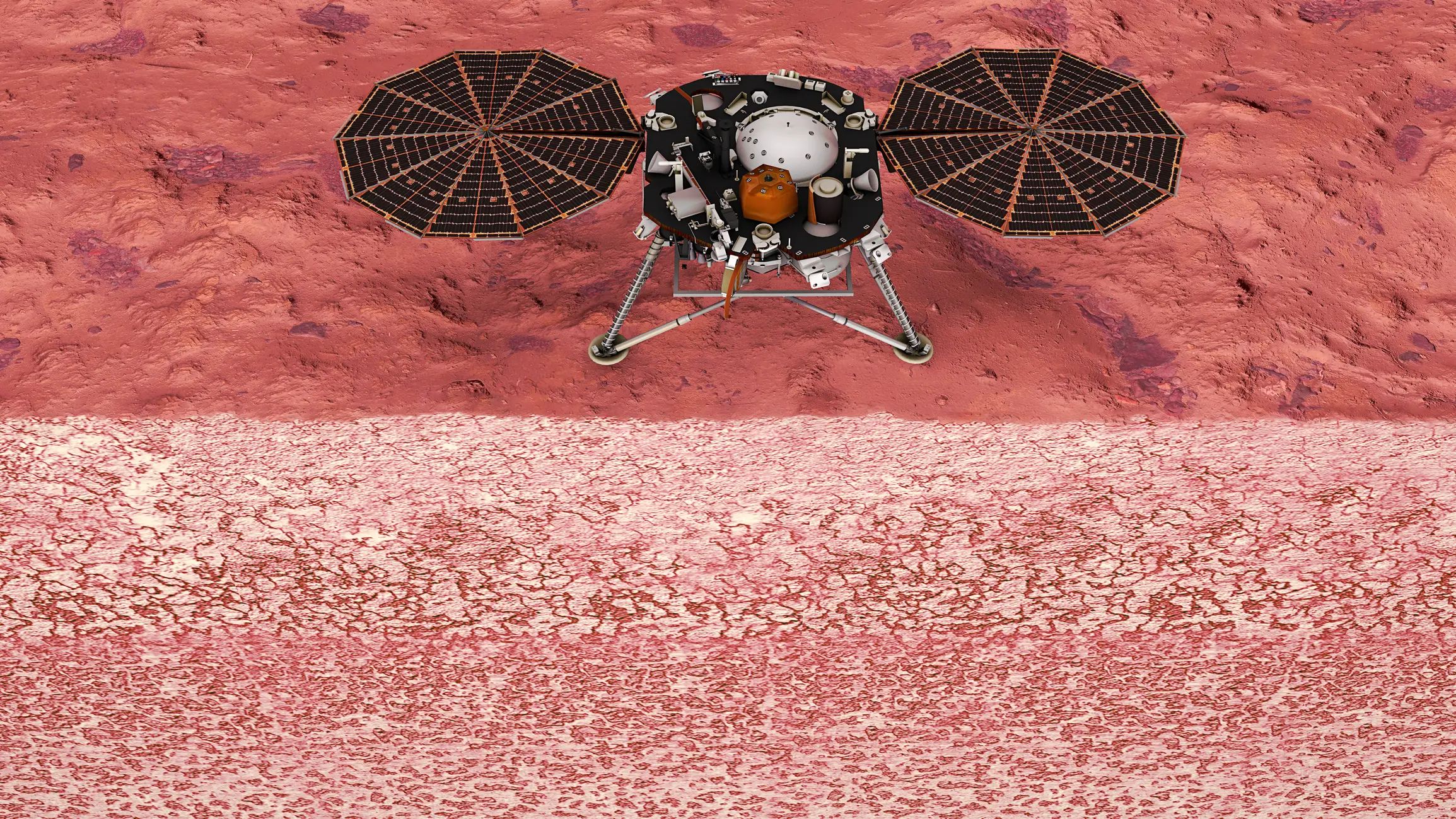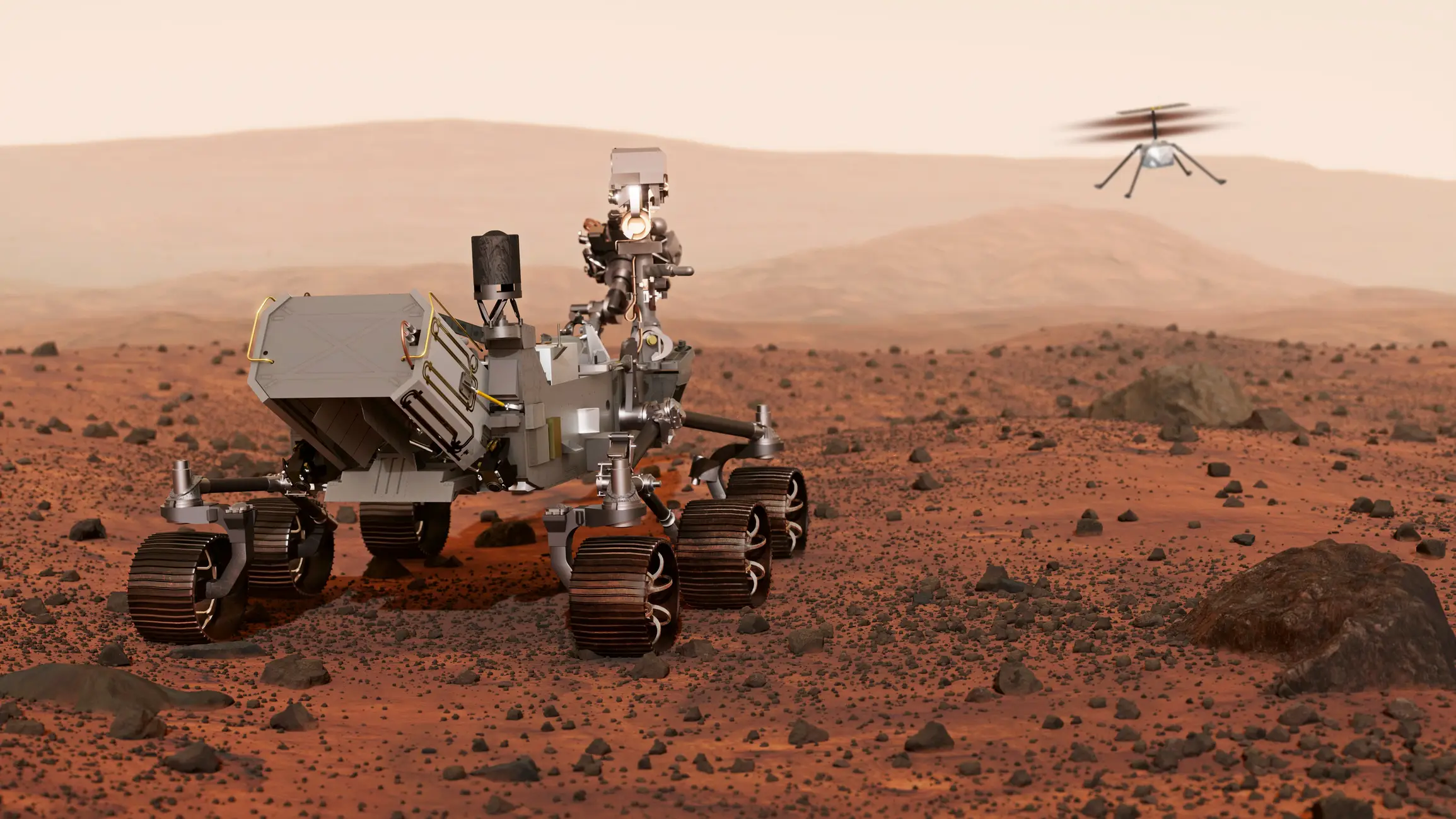
Water that could possibly “harbor life” has been detected 12 miles below the surface of Mars.
We could potentially be one step closer to finding extraterrestrial life after new research has uncovered water on the Red Planet that might provide a habitable environment.
The data was secured from NASA’s InSight Lander, a robot explorer on the planet, which indicates there are deep porous rocks with “oceans” of liquid water inside.

Advert
Scientists reckon this could be covering the entire planet to a depth of a mile.
Drilling a hole one mile into the ground is no mean feat, it’s tricky to do even on Earth and at the moment, it’s too deep to drill that far on Mars with current technology.
However, there’s hope that in the future, it could aid a human colony on Mars.
That being said, it doesn’t look like this particular patch of underground water will be used by people in the years to come because it’s situated inside tiny cracks in rock that’s in the middle of the planet’s crust.
In fact, it's something between seven miles to 12.5 miles deep.

Still, it’ll be a great spot to look for evidence of life on Mars, according to the research team.
They published their findings in the journal, Proceedings of the National Academy of Sciences (PNAS).
Co-author of the study, Professor Michael Manga, of University of California, Berkeley, said: “Establishing that there is a big reservoir of liquid water provides some window into what the climate was like or could be like.
“And water is necessary for life as we know it. I don’t see why [the underground reservoir] is not a habitable environment. It’s certainly true on Earth – deep, deep mines host life, the bottom of the ocean hosts life.
“We haven’t found any evidence for life on Mars, but at least we have identified a place that should, in principle, be able to sustain life.”

Scientistic analysis suggests that oceans disappeared from the Martian surface over three billion years ago and since then, probes have been sent to the Red Planet to find out where the water went.
They reckon that the polar ice caps can’t account for all of it and the research team say that there could be more water in the Martian crust than the “volumes proposed to have filled hypothesized ancient Martian oceans”.
Professor Manga added that using the data collected, they’ve “ figured out the thickness of the crust, the depth of the core, the composition of the core, even a little bit about the temperature within the mantle”.